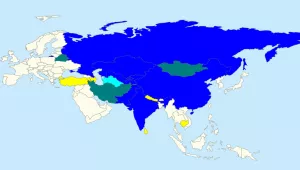
Abstract
Over the past two decades, the United States has increasingly turned to targeted sanctions and export restrictions, such as those imposed against Iran and North Korea, in order to curb the spread of weapons of mass destruction. One vexing problem, however, is how to contend with jurisdictional hurdles when the violations occur overseas, in countries that are unable or unwilling to assist US enforcement efforts. To solve this problem, US prosecutors are turning to strategies with significant extraterritorial implications—that is, exercising legal authority beyond national borders. One such tool is to use civil legal procedures to seize assets linked to sanctions or export-control violations in jurisdictions that lack cooperative arrangements with US enforcement agencies. While this may be an attractive strategy to bolster enforcement efforts against overseas illicit procurement, using such tools is not without consequence. This article explores the political, legal, and technical implications of enforcing extraterritorial controls against overseas non-state actors by exploring the recent uses of civil-asset forfeiture against Iranian and North Korean procurement networks.
Aaron Arnold (2018): Solving the jurisdictional conundrum: how US enforcement agencies target overseas illicit procurement networks using civil courts, The Nonproliferation Review, DOI: 10.1080/10736700.2018.1515695
The full text of this publication is available via Nonproliferation Review.




